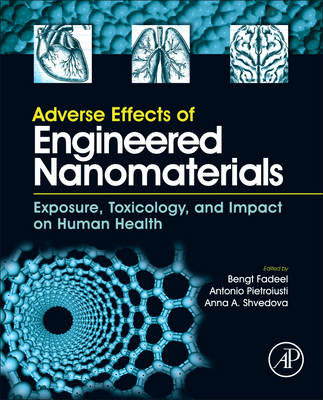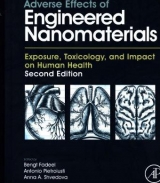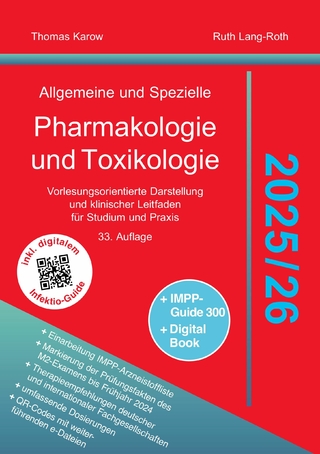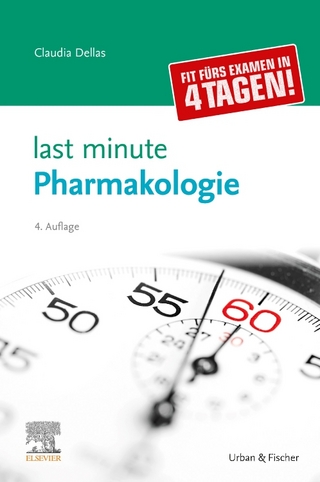
Adverse Effects of Engineered Nanomaterials
Academic Press Inc (Verlag)
978-0-12-386940-1 (ISBN)
- Titel erscheint in neuer Auflage
- Artikel merken
Adverse Effects of Engineered Nanoparticles: A Disease-Oriented Approach provides a systematic evaluation of representative engineered nanomaterial (ENM) of high volume production and of high economic importance. Each class of nanomaterials discussed includes information on what scientists, industry, regulatory agencies and the general public need to know about nanosafety. This book, written by leading international experts in nanotoxicology and nanmoedicine, gives a comprehensive view of the health impact of ENM, focusing on their potential adverse effects in exposed workers, consumers and patients. The beneficial applications, both diagnostic and therapeutic, of ENM are also highlighted. This book fills an important need in terms of bridging the gap between experimental findings and human exposure to ENM, and the clinical and pathological consequences of such exposure in the human population.
BENGT FADEEL is Professor of Medical Inflammation Research at the Institute of Environmental Medicine, Karolinska Institutet, Stockholm, Sweden, and Adjunct Professor of Environmental and Occupational Health, University of Pittsburgh, Pittsburgh, PA. He served as Vice Chairman of the Institute of Environmental Medicine from 2009-2013. He received his M.D. and Ph.D. degrees from Karolinska Institutet and was elected as a Fellow of the Academy of Toxicological Sciences in 2012. He is a current or past member or coordinator of several EU-funded projects on nanosafety, including NANOMMUNE, MARINA, NANOREG, SUN, and NANOSOLUTIONS, and member of the EU-funded GRAPHENE Flagship Project, and of the national MISTRA Environmental Nanosafety consortium. Dr. Fadeel is also Chair of the Working Group on Systems Biology in the EU Nanosafety Cluster and a member of the WHO-IPCS Working Group on principles and methods to assess the immunotoxicity of nanomaterials. He is Chair of the Scientific Panel of the National Platform for Nanosafety in Sweden. He is author or co-author of more than 200 original papers and review articles to date. Dr. Fadeel was awarded the national Environmental Medicine Prize by the Cancer and Allergy Foundation in 2011 for his research on the opportunities and risks of the emerging nanotechnologies. ANTONIO PIETROIUSTI received his habilitation as Associate Professor in Occupational Medicine from the Italian Ministry of Education, University and Research in 2013 and he teaches Occupational Medicine at the Faculty of Medicine and Surgery of the University of Rome Tor Vergata (English course). He is also professor of Occupational Medicine at the University “Nostra Signora del Buon Consiglio of Tirana, Albania. He is/has been member or coordinator of several national projects funded by the Italian Ministry of Health and by the Italian Ministry of Education, University and Research. He is/has been member of two Seventh Framework Program projects on nanosafety including FP7-MARINA and member of one Seventh Framework Program project on the EU/LAC cooperation. He is Editor of the newsletter of the Toxicology Group of the Royal Chemical Society (UK), and served as co-editor of the special issue on Nanotoxicology published by the journal Toxicology and Applied Pharmacology in 2016. He was awarded by the Italian Society of Occupational Medicine in 2012 for his scientific activity in Occupational Medicine. He is author or co-author of 120 scientific articles. ANNA A. SHVEDOVA is Lead Research Physiologist at National Institute for Occupational Safety and Health (NIOSH) at the Center for Disease Control and Prevention (CDC) and Adjunct Professor of the Department of Physiology and Pharmacology, School of Medicine and Adjunct Professor of the Department of Pharmaceutical Sciences, School of Pharmacy of West Virginia University, WV. Dr. Shvedova received her Ph.D. and D.Sc. degrees from Moscow University, Russia and is currently Principal Investigator of a number of NORA/National Occupational Research Agenda and NTRC/Nanotechnology Research Center projects at the Exposure Assessment Branch/NIOSH/CDC. Dr. Shvedova was founder and first President of the Dermal Toxicology Specialty Section of the Society of Toxicology (SOT). She is member of advisory board committees for US Army, Air Force and NASA projects and served as workpackage leader in the FP7-NANOMMUNE project (2008-2011), and she is a partner of the FP7-NANOSOLUTIONS project (2011-2017) and member of the ethical board review of the Graphene Flagship Project of the European Commission (2016-2020). Dr. Shvedova has been honored with the SOT Public Communication Award in 2001; Alice Hamilton NIOSH Award for paper of the year in Occupational Safety and Health in 2006, 2009; Bullard-Sherwood Award: Research for Practice in 2011, and Women in Toxicology SOT Award in 2007. Dr. Shvedova is board member of the working group on Skin Notation at NIOSH/CDC, Associate Editor of Toxicology & Applied Pharmacology, and Editorial Board Member of Regulatory Toxicology & Pharmacology. Dr. Shvedova is author or co-author of more than 160 scientific articles and book chapters.
ENGINEERED NANOMATERIALS: HAZARD, EXPOSURE, AND SAFETY ASSESSMENT 1. Interactions with the Human Body - Renato Colognato, Margriet V.D.Z. Park, Peter Wick, Wim H. De Jong 2. Exposure Assessment - Antonio Bergamaschi, Ivo Iavicoli, Kai Savolainen 3. Biomonitoring - Enrico Bergamaschi, Andrea Magrini 4. Critical Evaluation of Toxicity Tests - Maria Dusinska, Elise Rundén-Pran, Sara Correia Carreira, Margaret Saunders 5. Computational Approaches - Vidana Epa, Dave Winkler, Lang Tran 6. Regulation and Legislation - Maureen R. Gwinn, Birgit Sokull-Klüttgen
ENGINEERED NANOMATERIALS: IMPACT ON HUMAN HEALTH 7. Respiratory System - Ken Donaldson, Craig Poland 8. Cardiovascular System - Jennifer B. Raftis , Nicholas L. Mills, Rodger Duffin 9. Neurological System - Sandra Ceccatelli, Giuseppe Bardi 10. Immune System - Diana Boraschi, Albert Duschl 11. Skin - Nancy A. Monteiro-Riviere, Francesca Larese Filon 12. Gastrointestinal Tract - Mark A. Jepson 13. Reproductive Toxicity - Karin Sørig Hougaard, Luisa Campagnolo 14. Genotoxicity and Cancer - Shareen H. Doak, Ying Liu, Chunying Chen
BIOMEDICAL APPLICATIONS OF ENGINEERED NANOMATERIALS 15. Diagnostic Applications - Kai Cheng, Zhen Cheng 16. Therapeutic Applications of Engineered Nanomaterials- Cyrill Bussy, Christoph Alexiou, Robby A. Petros, Andreas Nyström, Laura Methven, Kostas Kostarelos
| Verlagsort | San Diego |
|---|---|
| Sprache | englisch |
| Maße | 191 x 235 mm |
| Gewicht | 920 g |
| Themenwelt | Medizin / Pharmazie ► Physiotherapie / Ergotherapie ► Orthopädie |
| Studium ► 2. Studienabschnitt (Klinik) ► Pharmakologie / Toxikologie | |
| Naturwissenschaften ► Biologie ► Biochemie | |
| Technik ► Medizintechnik | |
| ISBN-10 | 0-12-386940-4 / 0123869404 |
| ISBN-13 | 978-0-12-386940-1 / 9780123869401 |
| Zustand | Neuware |
| Haben Sie eine Frage zum Produkt? |
aus dem Bereich



